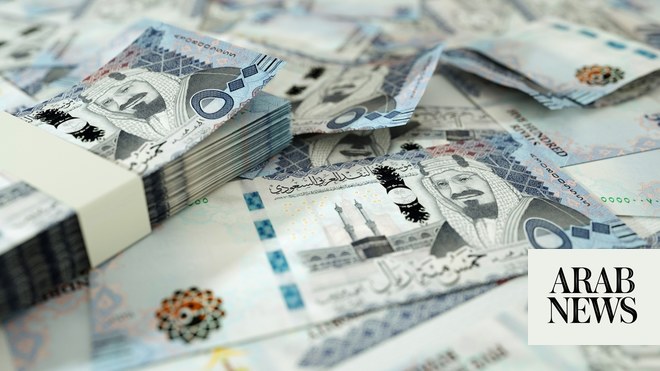IMF Approves $820 Million Disbursement to Egypt Following Third Review
RIYADH: The International Monetary Fund (IMF) has sanctioned the release of approximately $820 million to Egypt after concluding the third review of the nation’s extended arrangement.
In March, the IMF approved an expanded $8 billion support program for Egypt, which faced economic challenges due to the Gaza crisis. These challenges included slowing tourism and halved Suez Canal revenues caused by Yemeni attacks on Red Sea shipping lanes.
The agreement falls under the Extended Fund Facility (EFF), aimed at assisting countries with medium-term balance of payments issues stemming from structural problems that take time to address. Egypt’s 46-month EFF arrangement was initially approved on December 16, 2022.
Per the IMF’s statement, Egypt has made significant strides toward economic stabilization. Although inflation remains elevated, it is on a downward trajectory. A flexible exchange rate regime is a crucial component of the program, the IMF emphasized.
Since the combined first and second reviews in March, Egypt has witnessed improvements in its macroeconomic conditions. Inflation is easing, foreign exchange shortages have diminished, and fiscal targets, including those related to infrastructure expenditure, have been achieved. “These improvements are beginning to have a positive effect on investor confidence and private sector sentiment,” the IMF remarked.
The IMF underscored the importance of maintaining a flexible exchange rate and liberalized foreign exchange system to prevent external imbalances. A data-driven approach by the central bank is deemed essential for further reducing inflation.
Continued fiscal consolidation is expected to aid in managing public debt, while efforts to bolster domestic revenue and mitigate fiscal risks in the energy sector will ensure sufficient resources. Such measures are necessary to allocate more funds for essential services, including health and education, thus creating fiscal space for increased social spending to support vulnerable groups.
The IMF’s press release also pointed out that while some critical structural reforms have seen progress, further efforts are required to implement the State Ownership Policy. Enhancing the resilience of the financial sector, improving governance, and increasing competition in the banking sector are critical priorities for driving Egypt towards private-sector-led growth, which generates jobs and opportunities for all.
Egypt’s Minister of Finance, Ahmed Kojak, hailed the IMF’s approval of the third review as a vote of confidence in the government’s economic reform program, which includes various financial and economic reforms and targets. He noted that it also sends a reassuring message about the Egyptian economy’s potential for enhanced stability.
IMF Deputy Managing Director and Acting Chair, Antoinette M. Sayeh, highlighted that the reforms are yielding positive results, citing the unification of exchange rates and the tightening of monetary policy, which have reduced speculation and moderated price growth. “Policy settings are expected to help maintain macroeconomic stability. A sustained shift to a flexible exchange rate regime and a liberalized foreign exchange system, continued implementation of a tight monetary policy stance, and further fiscal consolidation, coupled with proper implementation of the framework to monitor and control public investment, should support internal and external balance,” Sayeh stated.
She also mentioned that the allocation of funds from the Ras El-Hekma deal to reserve accumulation and debt reduction offers an additional cushion against shocks. In February, a private consortium led by ADQ, an Abu Dhabi-based sovereign investment fund, signed a $35 billion agreement with Egypt to invest in Ras El-Hekma, marking the largest single foreign direct investment in Egypt’s history.
Looking ahead, Sayeh stressed the importance of implementing the structural reform agenda for inclusive and sustainable growth. Enhancing tax revenues, improving debt management, and using divestment resources for debt reduction would facilitate more productive spending, including targeted social expenditure.
Restoring energy prices to cost recovery levels by December 2025 is vital for reliable energy provision and sector balance. Improving the governance of state-owned banks, advancing state ownership policy, increasing fiscal transparency, and creating a level economic playing field are essential for attracting private investment.
“Risks remain significant. Regional conflicts and uncertainty about the duration of trade disruptions in the Red Sea are major sources of external risk,” Sayeh cautioned. She concluded, “Maintaining appropriate macroeconomic policies, including a flexible exchange rate regime, would help ensure economic stability. Advancing the structural reform program meaningfully would significantly improve growth prospects. Prudently managing capital inflows will also be important to contain potential inflationary pressures and limit the risk of future external pressures.”
Source: [RIYADH News Article]
